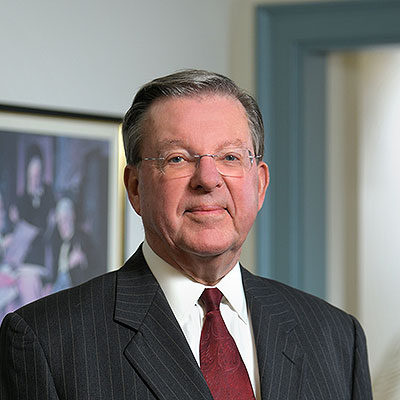Don't Take Shortcuts with Your Will. Work with a Lawyer.
It is easy to use an online service to create your will rather than go to a will lawyer near you. However, are you confident you're getting what you need? Our estate attorneys in Bucks and Montgomery Counties will work with you to create a legal will based on PA laws.
On the one hand, it's easy to determine where you want your assets to go after your death. After all, it's easy to fill in the blanks on the form housed on a website. But do you know Pennsylvania's case law and legislation surrounding wills? Laws pertaining to wills are state-specific.
For example, individual state laws and county ordinances significantly influence a will's creation. So, if you're unfamiliar with those laws and regulations, it's a good idea to talk with an estate lawyer. By talking to a will lawyer in our Doylestown or Norristown law offices, you ensure you don't miss something critical. Moreover, a will lawyer can help you avoid probate court.
After all, creating a will culminates in a legally binding document. Moreover, that will become part of your larger estate plan that, hopefully, you've worked with an estate attorney to create. Equally important, it requires legal knowledge such as:
- Can your house pass to a loved one under PA real estate laws?
- Does your will adequately handle your property transfer in conjunction with probate law?
- How much tax will be transferred owing to estate taxes?
- Can your life insurance policy go to someone else?
Will lawyers help navigate these potential issues while an online form doesn't. They also help circumvent the probate process.
Talk to Will Lawyers Who Understand PA Laws
We touched on some issues relating to PA laws above. BA valid will in Pennsylvania must meet these statutory requirements:
- It must be in writing
- Be executed by an individual 18 years of age or older (the "testator")
- The individual must be of sound mind
- Be signed by the testator or another person in the testator's presence and at the testator's direction.
- The will must be dated.
- You must sign the will in the presence of two or more credible witnesses.
Witnesses should subscribe to the will by stating that they saw the testator execute it willingly and without coercion. In addition, the witnesses sign in the hearing and are in sight of the testator.
Moreover, the testator must be 18, of sound mind, and not under undue influence. Considering PA laws, it is essential to work with lawyers who are knowledgeable about them.
What is Intestate Law?
Having one is essential regardless of who executes your will or how it's executed. That will should address these concerns:
- Property and assets
- Beneficiaries
- Executor
- Guardianships
- Signatures
But it's critical to note that your property becomes subject to intestate law without a will. According to Pennsylvania law, when a person dies without a valid will, their property passes by "intestate succession" to heirs.
In other words, the Commonwealth creates one if you don't have a will (all 50 states have laws to this effect). That's why you must work with a will lawyer to execute a will and avoid intestate law.
State laws on intestate succession determine how the deceased person's assets are divided. This reflects how the average person would have structured their will and estate plan. Unfortunately, this default system can differ dramatically from what you intended.
That holds even if your intentions are known. Without a valid will, intestate statutes apply—no exceptions. In addition, no exceptions apply regardless of need or exceptional circumstances.
For example, what if a family member has drug and alcohol issues that you want to address? What if a child has a pending divorce? In addition, what if a child or spouse has unique needs, and you tried to help them? Or what if there's the threat of creditor or bankruptcy issues?
Uniform Probate Code
Moreover, intestate laws do not allow you to select who receives your assets. The Uniform Probate Code (the Code) is the starting point for many states' laws. A lawyer can provide in-depth advice regarding the Code's nuances.
Under that Code, close relatives take property instead of distant relatives. The classes of relatives receiving property under the Code include:
- The decedent's surviving spouse
- Descendants (children, grandchildren, etc.)
- Parents
- Descendants of the decedent's parents (siblings, nieces, and nephews)
- Grandparents
- Descendants of grandparents (aunts and uncles and cousins)
Adopted descendants are treated the same as biological descendants. However, if no relatives are qualified to take the estate, the property defaults to the Commonwealth. Drafting a will with the help of a local will lawyer can avoid this outcome.
Wills Do More Than Bequeath Assets
Everyone thinks of a will as assigning assets after their death. But a well-drafted nominates fiduciaries, including executors, trustees, custodians, guardians for minors, and incapacitated adults. The powers of an executor to administer a derive from three sources:
- Pennsylvania Code
- The decedent's will
- By order of the Orphans' Court
Pennsylvania statutory law grants executors limited power to administer an estate. But a will establishes additional provisions for its administration. Otherwise, the executor must seek permission through the Orphans' Court.
Be Safe. Work with a Will Lawyer Near You.
It might be tempting to use an online service to create a will for less. However, this leaves you open to mistakes that could result in unwanted outcomes, such as legal issues.
That's why getting appropriate legal counsel from a will lawyer is essential. Our law firm has offices in Doylestown and Norristown, PA. So, our local lawyers and attorneys will work with you to create a rock-solid will for PA state legal requirements.
Equally important, our estate attorneys can help you create a sound estate plan. The estate planning process captures critical legal documents like the power of attorney, advanced healthcare directives, and estate litigation.



